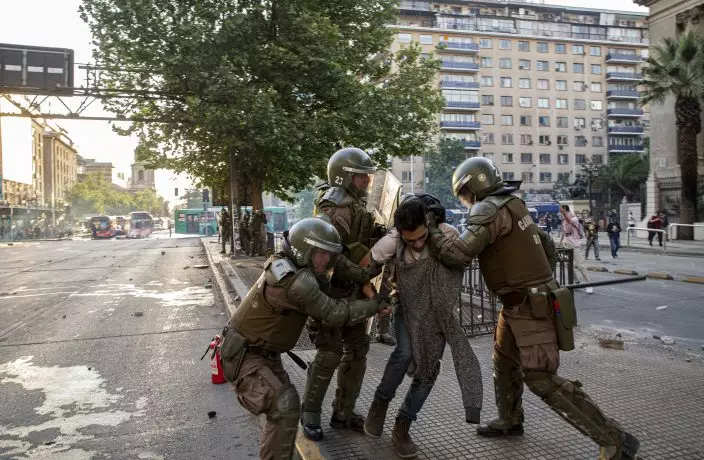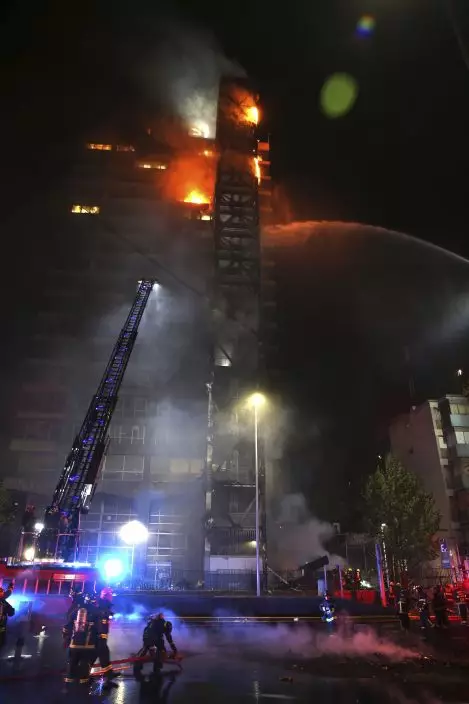Soldiers are patrolling the streets in Chile's capital for the first time since the military dictatorship of Gen. Augusto Pinochet ended in 1990.
The military presence is part of a state of emergency declared by President Sebastián Piñera in response to student-led protests over a rise in subway fares that paralyzed the city.
Protesters burned several subway stations and damaged dozens of others. Officials reported 156 police officers and 11 civilians injured and more than 300 people arrested.

Chilean police members detain a man during a protest against the rising cost of subway and bus fares, near the Santa Lucia subway station Santiago, Friday, Oct. 18, 2019. (AP PhotoEsteban Felix)
The streets of Santiago were calmer Saturday morning, but new protests broke out at midday and police fired tear gas to break them up.
The government recently raised subway fares from about $1.12 to $1.16 due to rising fuel prices.

Firefighters work to put out the flames rising from the Enel Energy Europe building set on fire by protesters against the rising cost of subway and bus fares, in Santiago, Friday, Oct. 18, 2019. (AP PhotoEsteban Felix)


